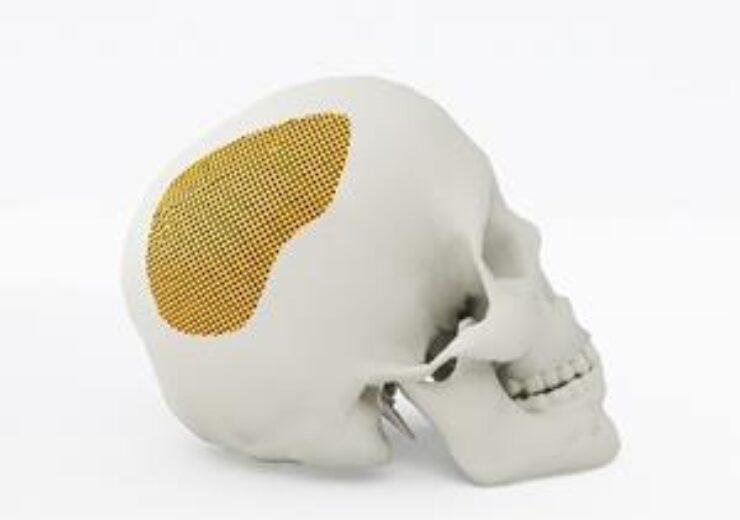If successful, the new material could be used in place of other implant materials with higher failure rates and greatly improve patient outcomes and reduce healthcare costs.

3d printed craniomaxillofacial devices (Credit: SINTX Technologies)
SINTX Technologies, (“SINTX” or the “Company”), an original equipment manufacturer of advanced ceramics, announced today a Phase 1 grant of $300k awarded by the National Institutes of Health (NIH) to develop, design and characterize 3D printed implants for craniomaxillofacial (CMF) applications using a composite of silicon nitride and polyetherketoneketone (SN-PEKK). The Phase I grant represents the second grant awarded to SINTX by the NIH in the past six months.
SINTX will collaborate with Drexel University, Thomas Jefferson University, and the University of Pennsylvania over the next 9-11 months to develop and test a new composite material for implants that combines the flexibility and durability of PEKK with the antibacterial and bone-integrating properties of silicon nitride. If successful, the new material could be used in place of other implant materials with higher failure rates and greatly improve patient outcomes and reduce healthcare costs.
“The continued need for medical imaging compatible 3D printed biomaterials for CMF osteoplasty that can be personalized, promote integration, and prevent infection is significant,” said Dr. Ryan Bock, Vice President of Research & Development, SINTX Technologies. “We believe that this high-performance silicon nitride PEKK material is a promising biomaterial for CMF applications because of its antibacterial activity, osseointegration, radiographic imaging, and durability. We’re eager to demonstrate proof of concept through this NIH Phase I grant.”
The U.S. government funded research grant aims to provide a strong rationale and preliminary data to support the further study and commercialization of 3D printable silicon nitride PEKK composite for CMF implants which could substantially reduce implant failures due to infection and poor bone integration. Today, more than 235,000 Americans undergo CMF surgery annually, with implant failure rates averaging 5.5 percent. Failures are often attributed to infections, poor osseointegration, corrosion, and fracture. Most can be linked to implant materials that underperform in bioactivity, infection control, osseous integration, or mechanical stability.
Americans undergo reconstructive surgery to repair CMF damage due to injury or disease and receive treatment for severe cranial and facial bone injuries using medical implants. Pre-shaped metal, polymer, or bioactive implants are used in cases that require bone repair or replacement; however, those materials often fail due to poor osseointegration; prosthetic infections and material degradation and fracture which often lead to revision surgery, hardware removal, debridement, long-term antibiotic use, and implant replacement. A better material is needed to overcome these problems and SINTX believes its materials have the potential to accelerate bone healing, reduce potential of infections, eliminate metal toxicity, and enhance radiographic imaging.
Source: Company Press Release
